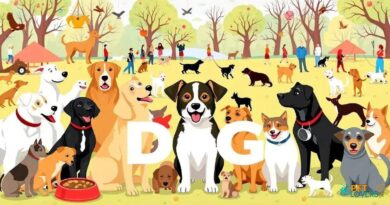O que é falta de socialização
What is Lack of Socialization?
Lack of socialization in dogs refers to a condition where a dog has not been adequately exposed to various environments, people, and other animals during its critical developmental stages. This absence of interaction can lead to behavioral issues, anxiety, and fearfulness. Understanding the implications of lack of socialization is crucial for dog owners who wish to raise well-adjusted pets.
Importance of Early Socialization
Early socialization is vital for puppies, ideally occurring between three and fourteen weeks of age. During this period, puppies are most receptive to new experiences. A lack of socialization during this critical window can result in a dog that is fearful or aggressive towards unfamiliar situations, making it essential for owners to introduce their puppies to a variety of stimuli, including different people, sounds, and environments.
Signs of Lack of Socialization
Dogs that have not been properly socialized may exhibit various signs, including excessive barking, growling, or hiding when confronted with new experiences. They may also show signs of fear or aggression towards other dogs or people. Recognizing these signs early can help owners take proactive measures to improve their dog’s social skills and overall behavior.
Consequences of Poor Socialization
The consequences of poor socialization can be severe, leading to behavioral problems that may affect the dog’s quality of life and the owner’s ability to manage their pet. Dogs that lack socialization may struggle with anxiety, leading to destructive behaviors or difficulty in public settings. This can create a cycle of fear and avoidance, further isolating the dog from positive experiences.
How to Improve Socialization
Improving a dog’s socialization requires a structured approach. Owners should gradually expose their dogs to new experiences, ensuring that each interaction is positive. This can include visiting dog parks, attending training classes, or simply walking in busy areas. Positive reinforcement, such as treats and praise, can help create a positive association with new experiences.
Socialization Techniques for Adult Dogs
For adult dogs that have not been socialized properly, the process may take longer but is still achievable. Techniques such as controlled introductions to new environments and gradual exposure to other dogs can be effective. Owners should remain patient and consistent, allowing their dogs to progress at their own pace while providing support and encouragement.
The Role of Professional Training
In some cases, seeking the help of a professional dog trainer or behaviorist may be necessary to address severe lack of socialization. These professionals can provide tailored strategies and techniques to help dogs overcome their fears and learn appropriate social behaviors. Group classes can also offer a controlled environment for dogs to interact with others safely.
Socialization and Breed Differences
It’s important to note that different dog breeds may have varying socialization needs. Some breeds are naturally more sociable and adaptable, while others may be more reserved or protective. Understanding a dog’s breed characteristics can help owners tailor their socialization efforts to meet their specific needs, ensuring a more successful outcome.
Long-Term Benefits of Proper Socialization
Proper socialization has numerous long-term benefits for dogs and their owners. Well-socialized dogs are generally happier, more confident, and easier to manage in various situations. They are less likely to develop behavioral issues, making them more enjoyable companions. Additionally, socialized dogs often have better interactions with other pets and people, enhancing their overall quality of life.



